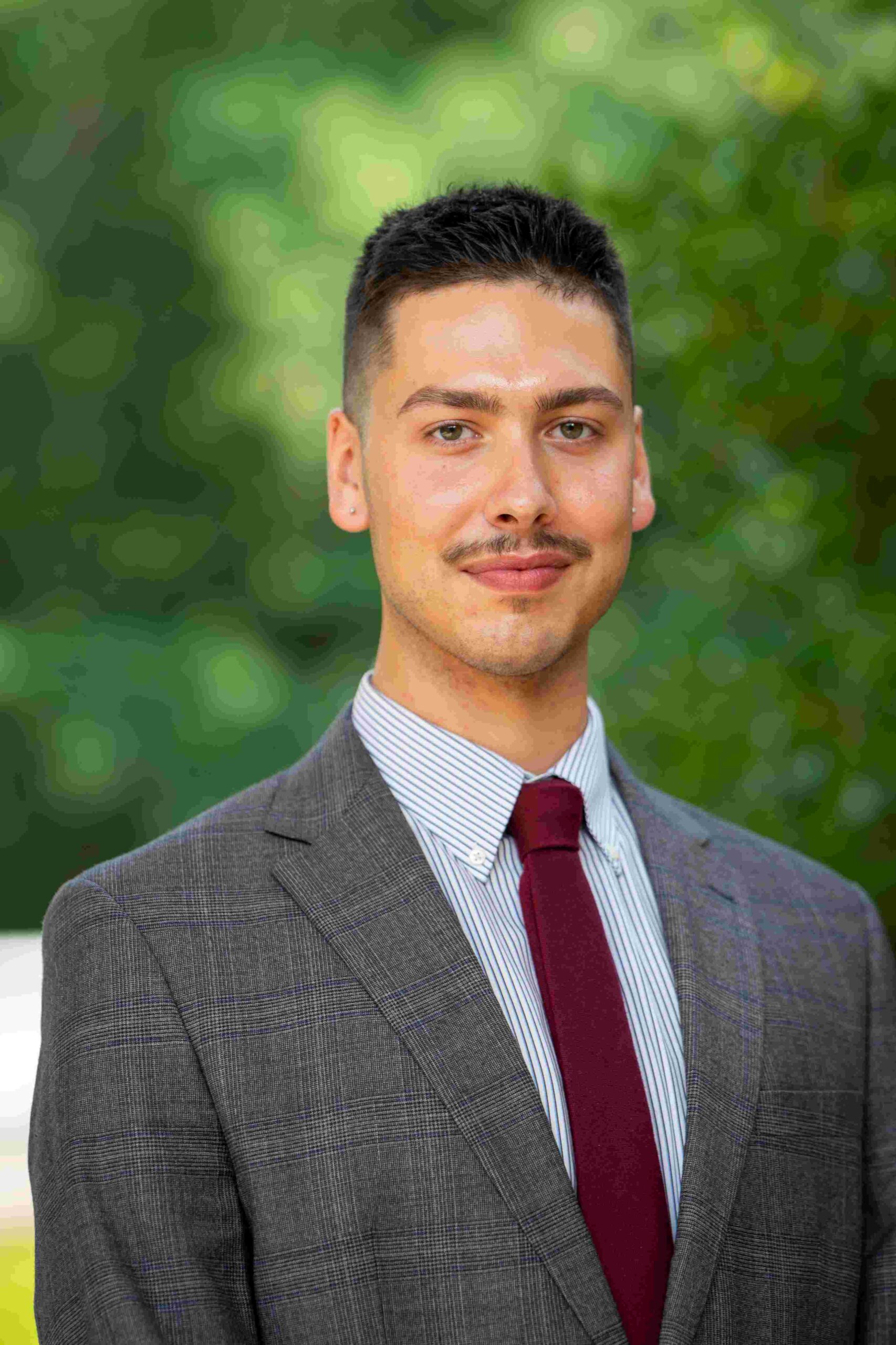Benchmarking with current student Layne Cole

Christopher ‘Layne’ Cole is from Roxboro, NC, a small town about an hour north of Durham where he grew up on a small farm. He went to UNC Asheville and graduated with an economics and international studies major and minors in human rights law and political science.
We sat down to talk with Layne about his recent work with the NC benchmarking project. Also, note that while we are interviewing Layne about this project, there are 3 other research assistants (Keegan Huynh, Noah Ellington, and Kirsten Tucker, who are also working on this project and are doing equally as important work.
—————————————————————————————————————————
Q: How did you find your way to the MPA program at UNC Chapel Hill?
Layne: I was kind of all over the place with my undergrad, but I have always been civically and politically minded. If I have to work, I want it to be for the betterment of my community and for the people that I care about. I love North Carolina, and I knew I wanted to stay here. Once I graduated I heard about the program called Lead for North Carolina from a friend of mine. I applied, got accepted, and became aquainted with the School of Government, the faculty and staff, and all the opportunities in local government across North Carolina. I got to know the program, and it seemed like a great community with a lot of really good resources and networking.
Q: We hear you are working with Dr. Obed Pasha on the benchmarking project. Could you tell us more about what this is and what your work entails?
I started with Dr. Pasha during my first semester in the program as a graduate assistantship, and it turned into a research assistantship. The original benchmarking project started in 1995 as a way for municipalities to come together and compare their services and their performance trends with other participating municipalities in North Carolina. When Dr. Pasha was hired, it became known as benchmarking 2.0 because it was focused on an overhaul of the data collection system and expanding the project to include more municipalities and peer conversations about best practices. But benchmarking as a field and as a subject, is about gathering data on your organization’s performance and metrics and then comparing that throughout multiple years (and also with comparable organizations), so that you can find new solutions to wicked problems, or, you know, timely issues. We work with 17 municipalities as of now, and we have give or take 15 service departments. It really is all about making local government better.
Q: What are examples of some of these data points?
Layne: We collect fire service data from every municipality that we work with, and it gets down to a very granular level to the amount of fires put out within 10 min. When that is tracked, and a municipality has a high level of number of fires that have been put out quickly, they can have a conversation with other local governments about how they do that and what resources they use to get this done. Then other local governments can start to advocate within their own government about funding resources and best practices to implement to do better.
Q: What has been an outcome of all this work?
Layne: It’s really three aspects we work to support. First is the data collection. We create a dashboard that’s publicly available, and this allows municipalities or even public citizens to compare service departments, metrics, and see how high performing or low performing your municipality is compared to the rest of North Carolina. The second part are the performance strategy sessions. This is where all 17 municipalities, representatives from different departments come together at the School of Government to have conversations about what best practices are what issues they’re running into. They take and borrow from each other, and we provide the space for that. And then lastly is an annual report about new and best practices that came out of these sessions that is then sent to every participating municipality. And also it becomes a publicly available resource on our website (here is 2023’s report).
Q: What has this research opened your eyes to?
Layne: We need public leaders now more than ever and people willing to push the envelope and work with new ideas and innovation. My experience has been that local governments are open to this level of experimentation, and that frequent narrative that it’s bearucratic and set in their ways is not what I have seen from this work. It made me hopeful.
Personally, it has helped me with hard and soft skills as a leader. I work very closely with the other RA’s assigned to this project – Keegan Huynh, Noah Ellington, and Kirsten Tucker. I’ve learned how to communicate with local government professionals, academics, and my fellow peers. Dr. Pasha really empowers us to make our own decisions, and even though he’s the subject matter expert, he really respects our opinion and wants us to be leaders in our own right.
Q: Tell us about Dr. Pasha.
Layne: Dr. Pasha is not only a great professor, but he’s also just a great person. He’s really caring and thoughtful, and I think that is a pillar of a good leader. Communication and collaboration is the foundation of how we work together. You know, we always bounce ideas back and forth, and I think that leads to a lot of success. But with that, we are very empowered to work independently and use our own skill set to make the benchmarking project better.
Q: Can you give us an example of something you initiated or implemented with this project?
Layne: As you can imagine, manually auditing data is a big part of this project, and validity is crucial for the service we provide, so I reached out to the AI Club on campus and proposed that they work with us to create a program that will clean or flag data audit before we check it and really streamline that system. The proposal was accepted and over the next year we’ll be working with the AI Club to create a program that will improve our data collection and really offer an opportunity for more robust analysis.
